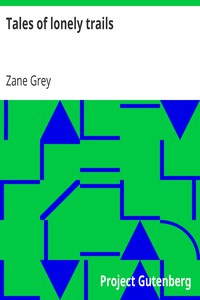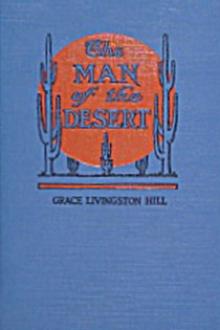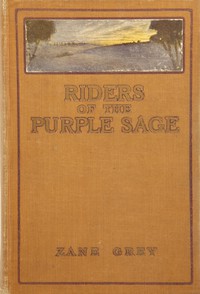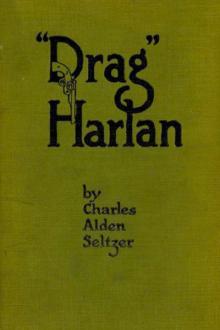Tales of lonely trails, Zane Grey [best ebook reader for chromebook .txt] 📗

- Author: Zane Grey
Book online «Tales of lonely trails, Zane Grey [best ebook reader for chromebook .txt] 📗». Author Zane Grey
When we topped a ridge of this slope the wind struck us strong in the face. The baying of the hounds rang clear and full and fierce. My horse stood straight up. Then he plunged back and bolted down the slope. His mouth was like iron. I could neither hold nor turn him. However perilous this ride I had to admit that at last my horse was running beautifully. In fact he was running away! He had gotten a hot scent of that bear. He hurdled rocks, leaped washes, slid down banks, plunged over places that made my hair stand up stiff, and worst of all he did not try to avoid brush or trees or cactus. Manzanita he tore right through, leaving my coat in strips decorating our wake. I had to hold on, to lie flat, to dodge and twist, and all the time watch for a place where I might fall off in safety. But I did not get a chance to fall off. A loud clamoring burst from the hounds apparently close behind drove my horse frantic. Before he had only run—now he flew! He left me hanging in the thick branches of a juniper, from which I dropped blind and breathless and stunned. Disengaging myself from the broken and hanging branches I staggered aside, rifle in hand, trying to recover breath and wits.
Then, in that nerveless and shaken condition, I heard the breaking of twigs and thud of soft steps right above me. Peering up with my half-blinded eyes I saw a huge red furry animal coming, half obscured by brush. It waved aside from his broad back. A shock ran over me—a bursting gush of hot blood that turned to ice as it rushed. "Big cinnamon bear!" I whispered, hoarsely.
Instinctively I cocked and leveled the rifle, and though I could not clearly see the red animal bearing down the slope, such was my state that I fired. Then followed a roaring crash—a terrible breaking onslaught upon the brush—and the huge red mass seemed to flash down toward me. I worked the lever of the rifle. But I had forgotten Haught's caution. I did not work the lever far enough down, so that the next cartridge jammed in the receiver. With a second shock, different this time, I tried again. In vain! The terrible crashing of brush appeared right upon me. For an instant that seemed an age I stood riveted to the spot, my blood congealing, my heart choking me, my tongue pasted to the roof of my mouth. Then I dropped the rifle and whirled to plunge away. Like a deer I bounded. I took prodigious bounds. To escape—to find a tree to leap into—that was my only thought. A few rods down the slope—it seemed a mile—I reached a pine with low branches. Like a squirrel I ran up this—straddled a limb high up—and gazed back.
My sensations then were dominated by the relief of salvation. I became conscious of them. Racing blood, bursting heart, labored pang of chest, prickling, burning skin, a queer involuntary flutter of muscles, like a palsy—these attested to the instinctive primitive nature of my state. I heard the crashing of brush, the pound of soft jumps over to my left. With eyes that seemed magnifying I gazed to see a big red woolly steer plunge wildly down the slope and disappear. A third shock possessed me—amaze. I had mistaken a wild, frightened steer for a red cinnamon bear!
I sat there some moments straddling that branch. Then I descended, and went back to the place I had dropped my rifle, and securing that I stood a moment listening. The hounds had taken the chase around below me into the gorge and were drawing away. It was useless to try to follow them. I sat down again and gave myself up to meditation.
I tried to treat the situation as a huge joke, but that would not go. No joke indeed! My horse had made me risk too much, my excitement had been too intense, my fright had been too terrible. Reality for me could not have been any more grave. I had risked my neck on a stubborn coward of a horse, I had mistaken a steer for a bear, I had forgotten how to manipulate the borrowed rifle. These were the careless elements of tragedy. The thought sobered me. I took the lesson to heart. And I reflected on the possible point of view of the bear. He had probably gone to sleep on a full stomach of juniper berries and a big drink of spring water. Rudely he had been routed out by a pack of yelping, fiendish hounds. He had to run for his life. What had he done to deserve such treatment? Possibly he might have killed some of Haught's pigs, but most assuredly he had never harmed me. In my sober frame of mind then I rather disapproved of my wholly unjustifiable murderous intent. I would have deserved it if the steer had really been the bear. Certainly I hoped the bear would outrun the hounds and escape. I weighed the wonderful thrill of the chase, the melody of hounds, the zest of spirited action, the peril to limb and life against the thing that they were done for, with the result that I found them sadly lacking. Peril to limb and life was good for man. If this had not been a fact my performance would have been as cowardly as that of my horse. Again I had rise up before my mind the spectacle of opposing forces—the elemental in man restrained by the spiritual. Then the old haunting thought returned to vex me—man in his development needed the exercise of brawn, muscle, bone red-blood, violence, labor and pain and agony. Nature recognized only the survival of the fittest of any species. If a man allowed a spiritual development, intellect, gentleness, to keep him from all hard, violent action, from tremendous exertion, from fierce fight with elements and beasts, and his own kind—would he not soon degenerate as a natural physical man? Evolution was a stern inevitable seeking of nature for perfection, for the unattainable. This perfection was something that lived and improved on strife. Barbarians, Indians, savages were the most perfect specimens of nature's handiwork; and in proportion to their development toward so-called civilized life their physical prowess and perfectness—that was to say, their strength to resist and live and reproduce their kind—absolutely and inevitably deteriorated.
My reflection did not carry me at that time to any positive convictions of what was truest and best. The only conclusions I eventually arrived at were that I was sore and bruised and dirty and torn—that I would be happy if the bear got away—that I had lost my mean horse and was glad therefore—that I would have half a dozen horses and rifles upon my next hunt—and lastly that I would not be in any hurry to tell about mistaking a steer for a bear, and climbing a tree. Indeed these last facts have been religiously kept secret until chronicled here.
Shortly afterward, as I was making a lame and slow headway toward Horton Thicket, where I hoped to find a trail out, I heard Edd yelling, and I answered. Presently we met. He was leading my horse, and some of the hounds, notably Old Tom and Dan, were with him.
"Where's the bear?" I asked.
"He got away down in the breaks," replied Edd. "George is tryin' to call the hounds back. What happened to you? I heard you shoot."
"My horse didn't care much for me or the brush," I replied. "He left me—rather suddenly. And—I took a shot at what I thought was a bear."
"I seen him once," said Edd, with eyes flashing. "Was just goin' to smoke him up when he jumped out of sight."
My mortification and apprehension were somewhat mitigated when I observed that Edd was dirty, ragged, and almost as much disheveled as I was. I had feared he would see in my appearance certain unmistakable evidences that I had made a tenderfoot blunder and then run for my life. But Edd took my loss of hat, and torn coat, and general bedraggled state as a matter of course. Indeed I somehow felt a little pride at his acceptance of me there in the flesh.
We rode around the end of this slope, gradually working down into Horton Thicket, where a wild confusion of dense timber engaged my sight. Presently George trotted up behind us with the other dogs. "We lost him down on the hot dry ridges. Hounds couldn't track him," was all George said. Thereupon Edd blew four blasts upon his hunting-horn, which were signals to those on the stands above that the hunt was over for the day.
Even in the jungle tropics I had never seen such dense shade as this down in Horton Thicket. The timber grew close and large, and the foliage was matted, letting little sunlight through. Dark, green and brown, fragrant, cool thicket indeed it was. We came to a huge spruce tree, the largest I ever saw—Edd said eight feet through at the base, but he was conservative. It was a gnarled, bearded, gray, old monarch of the forest, with bleached, dead top. For many years it had been the home of swarms of wild honey bees. Edd said more than one bee-hunter had undertaken to cut down this spruce. This explained a





Comments (0)